Welcome to The Opus, the most comprehensive view of the wide landscape of college basketball. The Opus is not a preview, it's an awakening -- not to what could happen in the game, but what will happen. The Opus removes all mystery and intrigue. The accuracy of The Opus is beyond pinpoint. The Opus is not a road map to be unfolded at a gas station by the side of the road. The Opus is more accurate than GPS and is both celestial and terrestrial.
The power behind The Opus is the supreme basketball knowledge of The Bilastrator's gray matter, the most awesome force in the game's history -- The Bilastrator's brain. His supercharged cranium can measure and sort data for its predictive accuracy and rapidly quantify exactly how covariates might determine each individual outcome. In short, The Bilastrator knows his %&@#. After reading this masterstroke, so will you. As always, you're welcome.
Despite the negative publicity that has hit college basketball in the past month, this will be a great season. There is wonderful young talent and some fabulously experienced teams to challenge that young talent and create a magnificent contrast. This, too, will be the Year of the Big Man. There is tremendous size and backboard-dominating talent coming into the game. One thing is certain (other than the supremacy of The Bilastrator's basketball judgment): You had better be able to get the ball off the glass or you will give up second shots to the size in the game this season.
The Bilastrator's plan to remedy the NCAA's colossal, self-inflicted problems
College basketball has taken some well-publicized hits over the past month, and it seems that most of it has come as a surprise to those working in the NCAA office in Indianapolis. Certainly, the involvement of the FBI and U.S. Attorney and the weaponizing of NCAA rules through federal charges against 10 individuals came as a surprise to all, but the underlying conduct should come as a surprise to no rational professional who is paying any attention.
Of course, in the wake of this news, the NCAA did what it does best -- outside of making money. It formed a committee.
NCAA president Mark Emmert decided to release polling data to demonstrate public confidence in the NCAA has eroded, that most Americans believe the NCAA is more interested in money than in its athletes. Well, The Bilastrator could have saved Emmert the money he spent on such polling. There is no public confidence in the NCAA, and that has been the case for years. And the NCAA has demonstrated beyond a reasonable doubt that it is more interested in money than it is in its athletes. When the NCAA invented the term "student-athlete," it was not to benefit the athlete, but to ensure the NCAA would not have to pay workers' compensation. Everything the NCAA does is about money. There is nothing wrong with an athletic association having a primary focus on athletics and money, but the NCAA and its literati should admit it.
It is not at all surprising that Mark Emmert is using this "crisis" to forward an agenda. He has never let a good crisis go to waste before, so there is no indication he will let this one go to waste. But his rhetoric in the wake of this crisis is absolutely galling. To suggest that there is a code of silence in basketball that kept the NCAA in the dark is absurd. The NCAA and its people had as much knowledge of the basketball landscape and culture as anyone else. In fact, the NCAA had knowledge of Pittsburgh-based financial adviser Martin Blazer back in 2010 as part of the North Carolina investigation, but the NCAA decided to focus seven years of an investigation into a non-case against North Carolina instead. At the close of the North Carolina case, Emmert had the chutzpah to claim the Committee on Infractions was "hamstrung" by NCAA rules. What? It took seven years to determine the rules did not allow a prosecution of North Carolina? That is not just disingenuous, it is simply false.
The NCAA is in dire need of an overhaul, but not just because of the current climate around college basketball and football. The Bilastrator has been telling the NCAA it was in dire need of an overhaul for well over a decade, and the NCAA didn't listen. Well, the NCAA should have listened, and should listen now.
Here is The Bilastrator's handy Opus guide to a complete and healthy overhaul of the deeply flawed and troubled NCAA and its antiquated and overly complicated rule book. As always, you're welcome.
College basketball needs a commissioner
Basketball is the NCAA's biggest (really, only) revenue generator. In 1984, college football effectively broke away from NCAA control to operate separately from the NCAA office in Indianapolis. Therefore, since basketball is the NCAA's only real cash cow, basketball should have its own, separate governance structure. College basketball is a multibillion-dollar industry and should be governed in such a fashion.
The NCAA needs to appoint a commissioner of college basketball and confer upon the commissioner the appropriate power and authority to govern the game such that it can pivot and adapt to a changing landscape. There should be a small college basketball board of governors to whom the commissioner should answer, and the rest of the NCAA presidents should stay in their own lanes and run their own schools. The commissioner and board will govern only Division I basketball, and all other divisions can remain under the current structure or develop their own governance structure. Only Division I generates revenue and the resulting problems, and only Division I needs to be addressed in a special manner.
New rule book for basketball
This is not to be confused with rules of play. The commissioner and board of Division I need to formulate a rule book specifically for Division I basketball. It will not be difficult; it will be simple. Throw out the old rule book and allow only rules that are important to the overall health and welfare of the enterprise. The rest need to go.
Division I basketball must contract
No reasonable person can possibly believe that Division I is not far too big. There are 351 Division I teams in men's college basketball, and that is ridiculous. Division I should be reduced to approximately 120 teams. With a smaller number of Division I teams, there will be more quality players spread out over fewer units. Teams will have greater depth, talent and roster and lineup flexibility. With more talent spread out over fewer units, there will be more money spread out over fewer units, too. It is a no-brainer. Those not making the cut may certainly play in their own division and govern it the way they want. Division I can still invite lower-division teams to participate in its postseason tournament, but they would not play during the regular season.
Reformed adjudication system
The current "collegial" system does not work, and it has never worked. Not long after Emmert became NCAA president in 2010, he and I met to discuss issues facing college sports, specifically basketball, and he asked me about my feelings on certain infractions cases. When I said the system was in dire need of change, he disputed that and said he and the membership believe the system works quite well. Well, he was wrong then, and he is wrong now.
The NCAA needs an adversarial system of dispute resolution. The NCAA can and should have an enforcement arm, but that arm should investigate and bring cases, not decide cases. Both the United States Olympic Committee (USOC) and the United States Anti-Doping Agency (USADA) have their disputes resolved before the American Arbitration Association. If it is good enough for them, it is good enough for the NCAA. That way, schools, coaches and administrators can defend themselves against charges brought, and all cases can be adjudicated by a panel of independent arbitrators agreed upon by the parties. It would be simple, fast, consistent, authoritative and trustworthy. Right now, it is none of those things.
Exit the eligibility business
The NCAA is an athletic association and does a great job running tournaments and championships, and it does an extraordinary job of making money. It does not, however, do a very good job of determining eligibility of incoming players or current players. Those decisions should be up to each institution, just as the admission and education of each student is up to each institution. This is where the NCAA's high-minded rhetoric and moralizing have brought nothing but trouble. Having the NCAA regulate academics and academic eligibility is like having the NFL regulate medical practices at area hospitals in NFL cities. Each school is responsible for the admission and education of every non-athlete student with no oversight outside of accreditation. They can be trusted to do the same with athletes. NCAA involvement in eligibility, initial and otherwise, is costly, controversial and of very little value. There is no legitimate reason to continue. If conferences wish to perform such a function, knock yourselves out.
Dump amateurism
Mark Emmert falls all over himself to state that students cannot be employees, or else why should they even go to school? That is nonsense, and NCAA policy and the schools themselves prove it. All non-athlete students are allowed to work for the university they attend, and such employment has no bearing on their status as full-time students. Similarly, all non-athlete students are allowed to be employees of outside entities, and such employment has no bearing on their status as full-time students. The idea that students cannot be employed while enrolled is a lie. It always has been a lie. Similarly, athletes are allowed by NCAA rules to have jobs while in school (as long as those jobs are not based upon their athletic reputations). Therefore, there is no impediment to any athlete being employed while in school and playing a sport. The NCAA is lying when it states that students cannot be employed.
There is no legitimate reason to limit athletes from working for or contracting with outside entities for services, name, likeness or publicity rights. It is past time for athletes to be allowed to realize upon their value in the marketplace. Right now, the FBI probe and resulting federal charges are due not to federal law, but NCAA policy. For the alleged actions NOT to be crimes, federal law does not have to change, only NCAA rules have to change. That speaks volumes about how ridiculous these rules can be and are.
Money and education are not mutually exclusive. That is proven by the fact that non-athlete students are not prohibited from earning money from the school or outside the school while at the same time being full-time students.
Players should be allowed to sign contracts with agents. The NCAA can certify agents just like the professional leagues do and regulate their behavior. It is not that difficult.
The Olympics dumped amateurism 30 years ago. It is time for the NCAA to do the same.
Immediate resignation of Mark Emmert
This last reform is not suggested lightly. This is not about the person, but about the position and the results achieved by the position. Mark Emmert is a nice person and a person of goodwill with good intentions. He has been, however, a poor leader who has achieved poor results. He should resign immediately and allow the NCAA to move forward with better leadership.
To paraphrase Ronald Reagan on Jimmy Carter: Is the NCAA better off now than it was when Mark Emmert took over as president? The answer is clearly no, and Emmert's recently released polling data proves it. The NCAA has never been held in lower esteem, has never had more scandal and has never been more out of touch. On Emmert's watch, the NCAA had the fiasco of Penn State, and absolute silence and inaction with regard to Dr. Larry Nassar. The NCAA has had the Miami scandal for which Emmert had to hire Kenneth Wainstein (who investigated North Carolina) to investigate the NCAA; then Emmert fired Julie Roe Lach, whom Emmert himself hired to run enforcement. The Miami scandal happened right down the hall from Emmert's office.
Then, when the current FBI probe became public, Emmert expressed surprise that there was cheating in the game, and he stated for the first time that the system was broken. After all, Emmert defended the system and never said or implied prior that the system was broken. He defended the enforcement system and never said or implied it was broken. In fact, he defended both under oath in the O'Bannon trial. He is, at best, out of touch on such issues. Such a flip-flop on a vital issue shows a total lack of understating of the enterprise.
Emmert spoke of the COI feeling "hamstrung" by the rules, rules he supported as president and as a university president. His enforcement staff had better things to do than chase a case it knew it could not win against North Carolina, at the expense of dealing with the issues that later were addressed by the FBI and U.S. Attorney. Again, the NCAA was fully aware of Martin Blazer in 2010 in the North Carolina case, yet chose not to pursue it. Emmert was NCAA president at the time and, with all due respect, was either willfully blind or clueless on the importance of the issue.
On his watch, the NCAA has been exposed as dysfunctional and ineffective, and his leadership has brought us to this low point in the NCAA's history. Nobody should take pleasure in asking for someone to move on and find other employment, but it is time for Mark Emmert to go. If the same accountability of athletic leaders is applied to Emmert, his leadership clearly did not lead to positive outcomes. He said the NCAA has to "own" where it is right now. Well, Emmert, too, has to own where he has guided this ship, which is right onto the rocks.
The Bilastrator's national championship favorites

Michigan State Spartans: Experienced and deep, with a humble superstar, Miles Bridges; an amazing passer, Cassius Winston; an unselfish leader, Lourawls "Tum Tum" Nairn; and an amazing coach, Tom Izzo. This will be a special year in East Lansing, a place where special is routine.

Duke Blue Devils: Mike Krzyzewski has the most talented roster in the nation for the second straight season. But this uber-talented roster has a true point guard, Trevon Duval. With a true point, Grayson Allen will average more than 20 points per game and be back in the Wooden Award discussion. If healthy, which was last year's biggest hurdle, Duke will be in San Antonio for the Final Four.
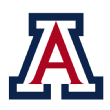
Arizona Wildcats: Sean Miller has both experience and talent. The Wildcats' talent is equal to any team's outside of Duke. The key will be the play of Parker Jackson-Cartwright at the point. Allonzo Trier will have continuity after missing most of last season and will be among the nation's best players.
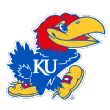
Kansas Jayhawks: Bill Self has size again and more experience than some of the Jayhawks' past few teams. If Bell Self had 14 fingers, he could wear all of his Big 12 title rings at one time.
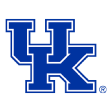
Kentucky Wildcats: Supreme talent, very little experience. But nobody is better at bringing along youth than John Calipari. Watch freshman Kevin Knox. That dude can really play.
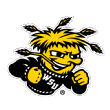
Wichita State Shockers: Gregg Marshall has done a masterful job with this program. In Landry Shamet, the Shockers have a legit leader. Rock solid at every position, Wichita State will fight any team to the last tick of the clock. Let's hope the selection committee treats the Shockers right this year.
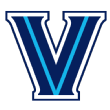
Villanova Wildcats: Jay Wright built a magnificent culture at Villanova and has a blend of depth, talent, youth and experience that could cut the nets down in San Antonio. Phil Booth is back after missing last season with an injury. Both Jalen Brunson and Mikal Bridges are ready to take off as stars.
The Bilastrator's Final Four favorites
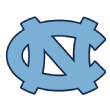
North Carolina Tar Heels: Sure, the Tar Heels lost a ton of production to the NBA draft, but there is plenty coming back and really good talent among the newcomers. When Joel Berry II returns from his injury (he broke his hand after a video-game loss), Carolina will be second-weekend good.
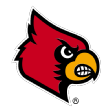
Louisville Cardinals: Despite losing Rick Pitino, who was dismissed following the initial wave of the FBI investigation and revelations, this team has the talent to challenge for it all. If Louisville stays together, the Cardinals can beat almost anyone.
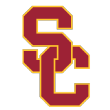
USC Trojans: Athletic, big and talented, the Trojans are the class of the Pac-12 (after Arizona). Bennie Boatwright is a star. People need to take notice.
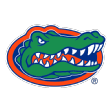
Florida Gators: Mike White has done a great job of rebuilding the Florida program into a national contender, just where Billy Donovan had it. With KeVaughn Allen, Chris Chiozza and Kevarrius Hayes returning, and John Egbunu healthy again, Florida should challenge in the SEC and beyond.
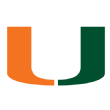
Miami Hurricanes: Despite the off-court distractions -- the Hurricanes have also been embroiled in the FBI investigation -- Miami will be really, really good. Ja'Quan Newton, Bruce Brown and Lonnie Walker make the Canes formidable. Jim Larranaga is one of the game's best coaches and best people. He will have Miami playing at a high level.
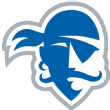
Seton Hall Pirates: This is Kevin Willard's best team. With Khadeen Carrington and Angel Delgado, the Pirates have a great inside-outside combo. Carrington is capable of having a special season. He is one of the more underrated stars in the college game.

Cincinnati Bearcats: Jacob Evans, Gary Clark and Kyle Washington return, and the Bearcats will be among the hardest-playing teams in the nation -- again. Mick Cronin's past few teams could score instead of relying upon defense and rebounding to make up for lack of offensive production. Cincinnati is for real.
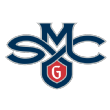
Saint Mary's Gaels: Randy Bennett has shooters and a great big man, Jock Landale. The only issue will be overall athleticism. Is Saint Mary's athletic enough to stay with the best teams in the country? The Bilastrator believes the Gaels can stay with anyone.
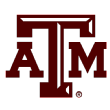
Texas A&M Aggies: The Aggies have big men Tyler Davis and Robert Williams but need quality guard play and shooting to be a Final Four contender.
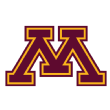
Minnesota Golden Gophers: Richard Pitino has methodically built up the Gophers program into a legit Big Ten contender. With Nate Mason, Reggie Lynch, Amir Coffey and Jordan Murphy, Minnesota can hang with anyone. This might be the year the Gophers bust out.
The Bilastrator's mid-major value selections
Vermont Catamounts
Harvard Crimson
Bucknell Bison
Yale Bulldogs
Oakland Golden Grizzlies
Middle Tennessee Blue Raiders
Charleston Cougars
FGCU Eagles
The Bilastrator's All-Americans
First Team
Miles Bridges, Michigan State Spartans
Bonzie Colson, Notre Dame Fighting Irish
Grayson Allen, Duke Blue Devils
Ethan Happ, Wisconsin Badgers
Yante Maten, Georgia Bulldogs
Second Team
Marvin Bagley III, Duke Blue Devils
Joel Berry II, North Carolina Tar Heels
Allonzo Trier, Arizona Wildcats
Michael Porter Jr., Missouri Tigers
Devonte' Graham, Kansas Jayhawks
Third Team
Robert Williams, Texas A&M Aggies
Deandre Ayton, Arizona Wildcats
Trevon Bluiett, Xavier Musketeers
Jalen Brunson, Villanova Wildcats
Jock Landale, Saint Mary's Gaels
Fourth Team
Kevin Knox, Kentucky Wildcats
Collin Sexton, Alabama Crimson Tide
Bennie Boatwright, USC Trojans
Jevon Carter, West Virginia Mountaineers
Angel Delgado, Seton Hall Pirates
Fifth Team
Jaylen Adams, St. Bonaventure Bonnies
KeVaughn Allen, Florida Gators
Reid Travis, Stanford Cardinal
Mohamed Bamba, Texas Longhorns
Bryant Crawford, Wake Forest Demon Deacons
The Bilastrator's 10 coaching savants to draw up the final, winning play
Tom Izzo, Michigan State Spartans
Mike Krzyzewski, Duke Blue Devils
Bob McKillop, Davidson Wildcats
Jay Wright, Villanova Wildcats
Steve Alford, UCLA Bruins
Roy Williams, North Carolina Tar Heels
John Beilein, Michigan Wolverines
Fran McCaffery, Iowa Hawkeyes
Dana Altman, Oregon Ducks
Mark Few, Gonzaga Bulldogs
The Bilastrator's 20 top-flight perimeter shooters
Markus Howard, Marquette Golden Eagles
Ethan Thompson, Oregon State Beavers
Svi Mykhailiuk, Kansas Jayhawks
Devin Cannady, Princeton Tigers
Jordan Bohannon, Iowa Hawkeyes
Kyle Guy, Virginia Cavaliers
Lonnie Walker, Miami Hurricanes
Riley LaChance, Vanderbilt Commodores
Bennie Boatwright, USC Trojans
Conner Frankamp, Wichita State Shockers
Chris Clemons, Campbell Fighting Camels
Matthew Fisher-Davis, Vanderbilt Commodores
Duncan Robinson, Michigan Wolverines
PJ Savoy, Florida State Seminoles
Jordan Poole, Michigan Wolverines
Grayson Allen, Duke Blue Devils
Trae Young, Oklahoma Sooners
Thomas Dziagwa, Oklahoma State Cowboys
Dakota Mathias, Purdue Boilermakers
Andrew Platek, North Carolina Tar Heels
Dejan Vasiljevic, Miami Hurricanes
The Bilastrator's top five dunkers
Miles Bridges, Michigan State Spartans
Robert Williams, Texas A&M Aggies
Marvin Bagley III, Duke Blue Devils
Chimezie Metu, USC Trojans
Michael Porter Jr., Missouri Tigers
The Bilastrator's non-traditional choices to take (and make) the last shot
Jaylen Adams, St. Bonaventure Bonnies
Tres Tinkle, Oregon State Beavers
Thomas Welsh, UCLA Bruins
Giddy Potts, Middle Tennessee Blue Raiders
Tyler Hall, Montana State Bobcats
Markus Howard, Marquette Golden Eagles
Quinton Rose, Temple Owls
Kelan Martin, Butler Bulldogs
Kyle Guy, Virginia Cavaliers
Brandon Goodwin, FGCU Eagles
Jerome Robinson, Boston College Eagles
Peyton Aldridge, Davidson Wildcats
E.C. Matthews, Rhode Island Rams
Gary Clark, Cincinnati Bearcats
Emmett Naar, Saint Mary's Gaels
Chris Clemons, Campbell Fighting Camels
Justin Bibbs, Virginia Tech Hokies
The Bilastrator's vastly underrated players
Thomas Wilder, Western Michigan Broncos
Khadeen Carrington, Seton Hall Pirates
Bruce Brown, Miami Hurricanes
Aaron Holiday, UCLA Bruins
Trae Bell-Haynes, Vermont Catamounts
Anthony Lamb, Vermont Catamounts
Mike Daum, South Dakota State Jackrabbits
Vladimir Brodziansky, TCU Horned Frogs
Lagerald Vick, Kansas Jayhawks
Bryce Aiken, Harvard Crimson
Kyron Cartwright, Providence Friars
Obi Enechionyia, Temple Owls
Nicholas Baer, Iowa Hawkeyes
Brandon Goodwin, Florida Gulf Coast Eagles
Nana Foulland, Bucknell Bison
Jordan Murphy, Minnesota Golden Gophers
Kevin Hervey, UT Arlington Mavericks
Kamau Stokes, Kansas State Wildcats
Kendrick Nunn, Oakland Golden Grizzlies
B.J. Taylor, UCF Knights
Josh Okogie, Georgia Tech Yellow Jackets
Peyton Aldridge, Davidson Wildcats
Justin Jackson, Maryland Terrapins
Shamorie Ponds, St. John's Red Storm
The Bilastrator's 30 best in-your-grill defenders
Robert Williams, Texas A&M Aggies
Mikal Bridges, Villanova Wildcats
Jevon Carter, West Virginia Mountaineers
De'Anthony Melton, USC Trojans
Reggie Lynch, Minnesota Golden Gophers
Trey Phills, Yale Bulldogs
Ethan Happ, Wisconsin Badgers
Kamar Baldwin, Butler Bulldogs
Khyri Thomas, Creighton Bluejays
Dontay Caruthers, Buffalo Bulls
Mohamed Bamba, Texas Longhorns
Trey Moses, Ball State Cardinals
Ben Lammers, Georgia Tech Yellow Jackets
Zach Brown, Wichita State Shockers
Tacko Fall, UCF Knights
Vic Law, Northwestern Wildcats
Myles Stephens, Princeton Tigers
Bruce Brown Jr., Miami Hurricanes
Bryce Moore, Western Michigan Broncos
Mike Watkins, Penn State Nittany Lions
Joel Berry II, North Carolina Tar Heels
Chris Chiozza, Florida Gators
Jordan Hunter, Saint Mary's Gaels
Chris Silva, South Carolina Gamecocks
Obediah Church, Missouri State Bears
Dakota Mathias, Purdue Boilermakers
Silas Melson, Gonzaga Bulldogs
Jeff Roberson, Vanderbilt Commodores
Chris Clarke, Virginia Tech Hokies
Isaiah Wilkins, Virginia Cavaliers
Kerwin Roach, Texas Longhorns
The Bilastrator's best glass-cleaning pursuers of The Rock (rebounders)
Angel Delgado, Seton Hall Pirates
Rokas Gustys, Hofstra Pride
Reid Travis, Stanford Cardinal
Chima Moneke, UC Davis Aggies
Kenrich Williams, TCU Horned Frogs
Jordan Caroline, Nevada Wolf Pack
Tyler Davis, Texas A&M Aggies
Jock Landale, Saint Mary's Gaels
Justin Tillman, VCU Rams
Nick Ward, Michigan State Spartans
James Thompson, Eastern Michigan Eagles
Wendell Carter Jr., Duke Blue Devils
Mohamed Bamba, Texas Longhorns
Bonzie Colson, Notre Dame Fighting Irish
Zach Smith, Texas Tech Red Raiders
Xavier Cooks, Winthrop Eagles
Chris Clarke, Virginia Tech Hokies
Robert Williams, Texas A&M Aggies
Yante Maten, Georgia Bulldogs
Justin Johnson, Western Kentucky Hilltoppers
Charlie Brown Jr., Saint Joseph's Hawks
The Bilastrator's best 'on-time and on-target' playmakers
Cassius Winston, Michigan State Spartans
Bryant McIntosh, Northwestern Wildcats
Jalen Brunson, Villanova Wildcats
Jordan Bone, Tennessee Volunteers
Jaylen Adams, St. Bonaventure Bonnies
Devonte' Graham, Kansas Jayhawks
Jalen Adams, UConn Huskies
Landry Shamet, Wichita State Shockers
Joel Berry II, North Carolina Tar Heels
The Bilastrator's best freshmen
Michael Porter Jr., Missouri Tigers
Marvin Bagley III, Duke Blue Devils
Collin Sexton, Alabama Crimson Tide
Deandre Ayton, Arizona Wildcats
Mohamed Bamba, Texas Longhorns
Jaren Jackson, Michigan State Spartans
Wendell Carter Jr., Duke Blue Devils
Lonnie Walker, Miami Hurricanes
Omari Spellman, Villanova Wildcats
Troy Brown, Oregon Ducks
Gary Trent Jr., Duke Blue Devils
Chaundee Brown, Wake Forest Demon Deacons
Rayshaun Hammonds, Georgia Bulldogs
Jaylen Hands, UCLA Bruins
Quade Green, Kentucky Wildcats
M.J. Walker, Florida State Seminoles
Kezie Okpala, Stanford Cardinal
Brandon McCoy, UNLV Runnin' Rebels
Trae Young, Oklahoma Sooners
Billy Preston, Kansas Jayhawks
Kevin Knox, Kentucky Wildcats
Trevon Duval, Duke Blue Devils
LaVar Batts, NC State Wolfpack
Hamidou Diallo, Kentucky Wildcats
Luka Garza, Iowa Hawkeyes
Emmanuel Akot, Arizona Wildcats
Kris Wilkes, UCLA Bruins
Nickeil Alexander-Walker, Virginia Tech Hokies
Marcus Carr, Pittsburgh Panthers
PJ Washington, Kentucky Wildcats
Matt Coleman, Texas Longhorns
Marcus Garrett, Kansas Jayhawks
The Bilastrator's ultimate bucket list
UConn vs. Syracuse (6 OT), 2009 Big East tournament
The Bilastrator will never forget Sean McDonough saying, "Overtime number six!" and Bill Raftery saying, "What time do the bars close?"
Illinois vs. Arizona, 2005 Elite Eight
An amazing comeback by the Illini, and amazing that The Bilastrator had to go up to the concourse to find a restroom at halftime. Unforgettable in so many ways.
Best shooters The Bilastrator ever saw
J.J. Redick, Duke Blue Devils
Stephen Curry, Davidson Wildcats
Kyle Korver, Creighton Bluejays
Salim Stoudamire, Arizona Wildcats
Chris Lofton, Tennessee Volunteers
Jason Kapono, UCLA Bruins
Best arena to watch a game
Allen Fieldhouse, Kansas
A cathedral of basketball that has a soul. The history of the game flows over you while you are there. The Bilastrator played in Cameron Indoor Stadium, so he knows of what he speaks.
Best game to watch in any arena
Duke vs. North Carolina
Simply put, it always delivers. Always.
Best practice The Bilastrator ever watched
Marquette (2003)
The Bilastrator has watched a ton of practices over the years and has seen magnificent teachers of the game in their classrooms. In 2003, Marquette's practices stood out by just a hair. Tom Crean had a Final Four team and had Dwyane Wade. Those practices were better than most of the games The Bilastrator watched that year.
Best coaches The Bilastrator ever watched in practice
Bob Knight
Mike Krzyzewski
Mike Montgomery
Gary Williams
Skip Prosser
Tom Izzo
John Beilein
Jim Calhoun
Lon Kruger
Rick Pitino
Brad Stevens
Jay Wright
Thad Matta
Dana Altman
Dr. Tom Davis
John Calipari
Bob Huggins
Rick Majerus
Bo Ryan
Bill Self
Roy Williams
Tom Crean
Lute Olson
Mike Brey
Tubby Smith
John Chaney
Geno Auriemma
Pat Summitt
C. Vivian Stringer
Best pre-practice lecture The Bilastrator ever watched
John Chaney, Temple Owls
Nobody gave a better pre-practice speech than Chaney. He would hold a Dunkin' Donuts coffee cup in his hand and give a presentation worthy of climbing the steps to see the Maharishi. "A blind man has no business at the circus," was one of the statements The Bilastrator wrote down. Of course, all of this was at 5:45 a.m., when Chaney held practices.
Best freshman The Bilastrator ever saw
Carmelo Anthony, Syracuse Orange, and Anthony Davis, Kentucky Wildcats
To say both were beyond their years is to undersell how freaking good they were, and at such a young age. Amazing.
Most fun The Bilastrator ever had
Atlantic 10 (1997-2001)
The Bilastrator's main beat in the late 1990s was the A-10, and it was an absolute blast. Whether it was Skip Prosser's Xavier teams at the Cincinnati Gardens with Lenny Brown and Gary Lumpkin, John Chaney's Temple teams with Mark Karcher, Lamont Barnes, Quincy Wadley and Lynn Greer, Al Skinner's Rhode Island teams with Tyson Wheeler and Cuttino Mobley or George Washington with Shawnta Rogers, it was a fabulous league of fun. Nobody took themselves too seriously, and the quality of coaching and playing was fantastic. Driving in a snowstorm from Olean, New York, to the airport in Buffalo is still the second-most-harrowing experience of The Bilastrator's life, just after listening to Digger Phelps recount his best season at Fordham.
Best individual performance The Bilastrator ever saw (season)
Kemba Walker (2010-11)
No player The Bilastrator covered took a team on his back like Walker did in 2010-11. From Maui to Houston, he was simply magnificent.
Best individual performance The Bilastrator ever saw (game)
Gonzaga's Adam Morrison scored 43 points on Michigan State in a 109-106, three-overtime win over the Spartans in November 2005. Maurice Ager had 36 points for Michigan State. And, afterward, drinks with Bill Raftery to rehash such an amazing game.
Toughest game-day shootaround The Bilastrator ever saw
Xavier Musketeer (1998)
Coached by Skip Prosser, the Musketeers had Lenny Brown, Gary Lumpkin, James Posey, Darnell Williams and Torraye Braggs, and when they hit the floor, it was bloody. And this was a game-day shootaround! The Bilastrator asked Prosser why they would go to war right before the game, and Presser said, "If we're going to lace 'em up, we're going to go full-blast." Well, it was a blast to watch that team work. What fun.
Best prediction The Bilastrator ever heard a coach make
At a Maryland practice in the late 1990s, The Bilastrator asked Hall of Famer Gary Williams who the little, skinny redshirt was shooting on a side hoop. Williams told The Bilastrator, "Who is that skinny kid? I'll tell you who. That's Juan Dixon, and he's Johnny Dawkins. You don't know him now, but you will. Everybody will." The Bilastrator never forgot that moment, and The Bilastrator will never forget Juan Dixon.
Best coaches with whom to have a postgame libation (win or lose)
Jay Wright, Villanova Wildcats
Mark Few, Gonzaga Bulldogs
Mike Brey, Notre Dame Fighting Irish
Mark Fox, Georgia Bulldogs
Bill Self, Kansas Jayhawks
Tom Izzo, Michigan State Spartans (milk)
Jimmy Patsos, Siena Saints
